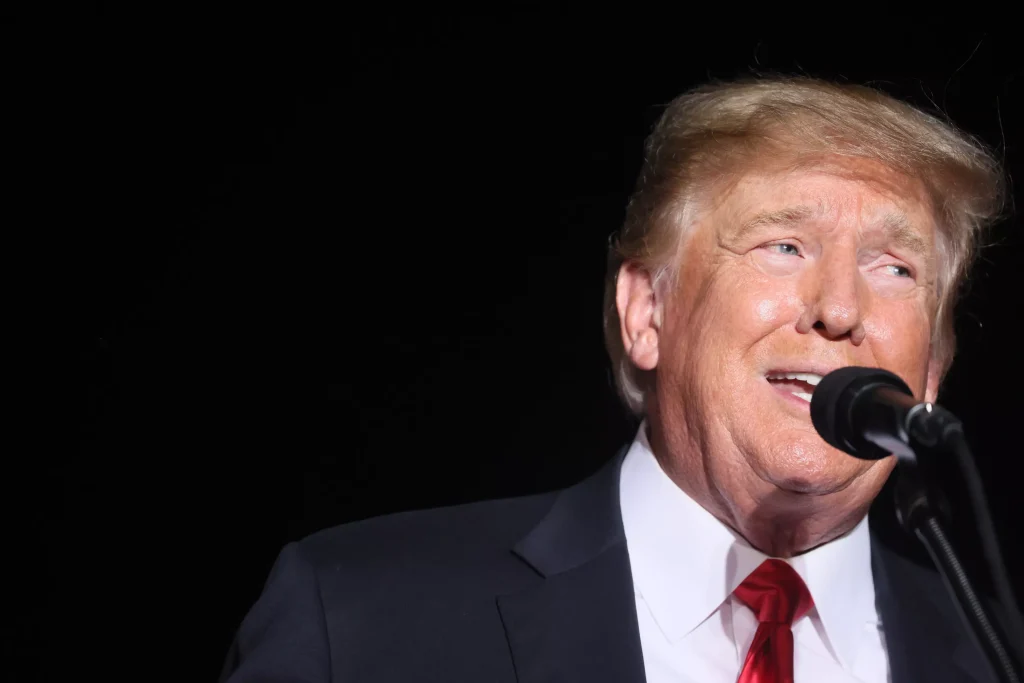The Office of Management and Budget recently clarified the specifics of certain allocations from key legislative acts. This comes in the wake of a directive issued by President Donald Trump, which aimed to re-evaluate funding linked to the Inflation Reduction Act and the Bipartisan Infrastructure Law.
A memo from Acting OMB Director Matthew Vaeth sheds light on these developments, outlining which funds might be affected by the executive order.
The memo issued by Vaeth draws attention to a couple of significant sections within the Unleashing American Energy package. This comprehensive set of directives was part of Trump’s early initiatives aimed at enhancing the United States’ position in the non-fuel minerals market, particularly rare earth minerals. The package includes a mandate to pause financial disbursements for certain programs, specifically targeting those related to electric vehicle infrastructure.
Vaeth’s communication clarifies that the funding pause focuses solely on electric vehicle programs. It calls for halting disbursements from the Inflation Reduction Act and the Bipartisan Infrastructure Law that are designated for EV charging stations. These funds, accessible through the National Electric Vehicle Infrastructure Formula Program and the Charging and Fueling Infrastructure Discretionary Grant Program, are now under review.
The executive order by Trump aims to create a balanced regulatory environment that supports consumer choice in vehicle purchases. It also seeks to address state emissions waivers that limit the sale of gasoline-powered cars, which some argue create an uneven market.
The intention is to remove unfair advantages and subsidies that currently favor electric vehicles over other technologies, which can inadvertently force consumers, businesses, and government bodies to lean towards EVs.
Moreover, the directive emphasizes the importance of ensuring that any action taken does not compromise the United States’ economic and national security. The goal is to maintain a steady and reliable energy supply across the nation, ensuring both economic stability and military readiness. Vaeth notes that agency heads have the discretion to disburse funds after consulting with the Office of Management and Budget.
The Trump administration, alongside congressional Republicans, is keen on revisiting and possibly tightening regulations around tax credits, loans, and grants. This includes using the Congressional Review Act to reassess and potentially revise rules that have yet to be finalized. This initiative is part of a broader effort to scrutinize the Inflation Reduction Act, which Trump has criticized in the past.
The Inflation Reduction Act is a robust piece of legislation, providing for a decade’s worth of tax credits, low-interest loans, and grants. These programs are projected to reach substantial financial figures, with some estimates suggesting they could exceed $1 trillion.
Such an extensive financial commitment underscores the importance of careful evaluation and potential reallocation of resources to ensure alignment with broader national priorities.
In light of these developments, the memo stresses the importance of aligning IRA and BIL allocations with overarching national goals. The focus remains on securing an abundant energy supply that is both reliable and accessible, supporting the nation’s economic and security interests. Agency leaders are advised to carefully consider these priorities when making decisions about fund disbursement.
This strategic approach reflects a broader vision of balancing economic growth with national security. By reassessing funding strategies and regulatory frameworks, the administration aims to foster an environment conducive to innovation and energy independence. This initiative is part of a larger narrative that promotes market-driven solutions and reduces reliance on government intervention.
The emphasis on non-fuel minerals and rare earth elements is particularly noteworthy. These resources are critical to a variety of industries, including electronics and defense. By positioning the United States as a leader in this domain, the administration seeks to enhance the country’s competitive edge in the global market.
The directive also aligns with a philosophy that prioritizes national interests and self-reliance. By focusing on domestic production and resource management, the administration aims to reduce dependence on foreign sources, thereby strengthening the nation’s geopolitical standing.
In conclusion, the recent memo from the Office of Management and Budget highlights a strategic shift in funding priorities. It underscores the administration’s commitment to fostering a robust, self-sufficient energy sector, while also ensuring that economic and national security remain at the forefront of policy decisions. This approach reflects a broader vision of sustainable growth and long-term prosperity for the nation.



